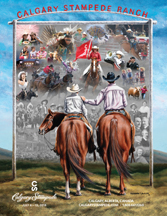- News Front Page
- Uncategorized
- Headline News
- Filipino Calgarian
- Business
- Pinoy Stories
- Community News
- Publisher's Note
- The Main Ingredient
- Views and Opinions
- Maikling Kwento
- Alberta News
- OFW – Month
- Travel News
- Health and Lifestyle
- Pinoy Toons
- Pinoy Spirit
- Entertainment
- The Philippine Lawyer
- Horoscope
- Greetings
- About Us
- Greetings From the Prime Minister
- Greetings from the President of the Philippines
- Greetings from the Premier of Alberta
- Greetings from the Mayor of Calgary
- Advertise With Us
- Disclaimer
- Subscription
Publisher's Note
- Publisher’s Note
 It was 22 years ago when I arrived in Canada and chose Calgary, Alberta to be my home. Leaving my family and friends behind, it was a new adventure for me to be in a new country without knowing anyone. That was the time I looked for a Filipino community paper and never found any, [...]
It was 22 years ago when I arrived in Canada and chose Calgary, Alberta to be my home. Leaving my family and friends behind, it was a new adventure for me to be in a new country without knowing anyone. That was the time I looked for a Filipino community paper and never found any, [...]
Visitors to Pinoytimes
Page added on October 28, 2013
Culture Etiquette
[if !mso]>
[endif]
[if gte mso 9]>
[endif] [if gte mso 9]>
[if !mso]>
[endif]
[if gte mso 9]>
[endif] [if gte mso 10]>
[endif] [if gte mso 9]>
Following is a list of common or notable faux pas in various cultures.
- Displaying the soles of your feet or touching somebody with your shoes.
- Eating with your left hand. Throughout most of the Middle East the left hand is reserved for bodily hygiene and considered unclean. Thus, the right hand should be used for eating.
[if gte mso 9]>
[if gte mso 9]>
[endif] [if gte mso 10]>
[endif]
Australia, New Zealand
- Confusing Australians with New Zealanders. The mistake will generally be taken in good humor, providing an apology is given.
- Many of the faux pas of The United States of America and The United Kingdom are also considered faux pas in Australasian countries, particularly Australia and New Zealand.
- In the Maori community of New Zealand, it is a faux pas not to remove one’s shoes when entering a Maori sacred building, such as a marae. In the dominant European community not removing shoes when entering a building is not a faux pas, therefore Europeans can sometimes forget to observe this tradition. This can offend Maori and sometimes cause tension.
- Sitting on or resting one’s backside against a table or desk can also offend Maori. The desk-top is where one focuses one’s mind, so should not be touched by the ‘dirty’ nether regions.
China, Taiwan
The following faux pas are derived from Mandarin pronunciations and they may also apply in other Chinese-speaking areas:
- Giving someone a timepiece, such as a clock or a watch, as a gift is a very unlucky faux pas. Traditional superstitions regard this as counting the seconds to the recipient’s death. Another common interpretation of this is that the phrase “to gift a clock” in Chinese is pronounced “sòng zhōng” in Mandarin, which is a homophone of a phrase for “terminating” or “attending a funeral”. Cantonese people consider such gift as a curse.
- Giving someone a fan or an umbrella as a gift is frequently unfriendly. The words fan “shàn” and umbrella “sǎn” sounds like the word “sàn”, meaning scatter or to loose. “sàn kāi” means to split up. Traditionally, the bride gives her parents a fan, symbolizing that she is leaving them for her husband. (Chinese society is traditionally paternal.)
- Sharing a pear with your loved ones is unlucky. “Sharing a pear” is a homophone of “separate”, both pronounced “fēnlí” in Mandarin. Sharing with distant friends is okay.
Other faux pas:
- At a dinner table, always serve the oldest person at the table first. If you do not know their age, serve the guest first. It is very important to show respect to the elders.
- Sticking your chopsticks into your rice and leave them standing there is a very unlucky faux pas. This looks like sticks of incense in a bowl used to honor dead ancestors, and such a symbol of death is extremely offensive at the dinner table. In Cantonese funeral tradition, a pair of chopsticks is used to stick a salt-preserved duck egg into a bowl of rice on the altar as an offering to the deceased.
- Attending a Cantonese wedding while you are still in mourning for a death in the family is unlucky. It is believed to bring bad luck to the marrying couple.
- Calling elderly relatives, including uncles and aunts, whether by blood or by marriage, by their given names is an impolite faux pas. (In ancient imperial China, it was even a serious crime to say or write an emperor’s given name. This has customarily made calling elderly relatives by their given names impolite.
Finland
- Not taking your shoes off when you enter someone’s home.
- Being late. The Nordic countries are unusually punctual, with meetings, events, and public transport usually happen on time.
- Placing a phone call to somebody after 10PM / 22:00.
- Talking too much. Finns are not uncomfortable with silent pauses in conversations; thus, cultural misunderstandings may happen when, for example, a British or American is trying to be friendly by constantly making small talk and a Finn is trying to be friendly by being silent.
- Calling Finland a Scandinavian country as they consider it a Nordic country.
- Refusing to have a sauna while being a guest.
[if !mso]>
[endif]
[if gte mso 9]>
[endif] [if gte mso 10]>
[endif] [if gte mso 9]>
France
- Addressing people with the familiar “tu” (like in Middle English: thou) when they should be addressed with “vous” (you) is seen as derogatory, insulting, or even aggressive. Conversely, addressing familiars with “vous” is considered snobbish and introduces distance.
- Talking about money, earning, social position, religion, politics, or war. These are topics that are to be avoided during the beginning of a conversation.
At a private dinner (these rules are routinely broken in casual dinners, especially with friends):
- Starting to eat before everybody is ready to begin.
- Not finishing one’s meal. It implies that the food is so poor one cannot finish it, or the host does not balance correctly the quantity of food one needs.
- Putting a piece of bread on one’s plate. Leave it on the table beside the plate. (Bread is not considered a part of the meal, but rather more like salt and pepper. This is why they do not charge for bread at the restaurant.)
- Biting into the piece of bread directly (unless you have something on it -butter, pâté…). One should break a small piece off, and put it into one’s mouth. (Same reason as above).
- Resting one’s hands under the table or the elbows onto the table.
- Crossing the fork and knife on the plate when the dish is finished; they should be more or less parallel, as it may distress the superstitious.
- Bringing a bottle of wine to a formal dinner in somebody’s home suggests that the hosts are unable to provide their own wine. One may do so if you explain to your hosts that you want them to discover a good wine that you like and that they do not know.
Specific inappropriate gestures:
- Tapping the top of the fist with the palm of the other hand (meaning: to have sex, to be done in).
- Tapping the inner part of the wrist, directed upwards, with the fingers of the other hand (meaning: to depart, to take a French leave).
Germany, Austria
- As is the case in many languages with such grammatical rules, addressing someone with the familiar second person pronoun (du) when they should be addressed with the formal form (Sie).
- The tapping of one’s index finger on the side of their head or the waving of one’s hand up and down in front of their face (palm of the hand towards the face) is both considered offensive gestures. Both of these gestures, along with the phrase, Sie haben einen Vogel (lit.: You have a bird), insinuate that the other person is crazy or deranged. In some cases, i.e. regarding police officers or judges, the offense may be fined. The severity of this offense has lessened to some extent in the last decades.
- [if gte mso 9]>
[endif] Displaying a swastika. Display of Nazi Symbols is also illegal in Germany.
[if !mso]>
[endif]
[if gte mso 9]>
[endif] [if gte mso 10]>
[endif] [if gte mso 9]>
Greece
[if gte mso 9]>
[if gte mso 9]>
[endif]
- Signifying “five” or even “stop” by holding up five fingers, with the palm of the hand facing the listener, especially when the palm is vertical, can be mistaken for an offensive gesture (similar to the finger). When signifying “five” the norm is to have the palm of the hand facing the speaker. Similarly for “Stop” closed fingers should be used.
- Referring to the “Former Yugoslav Republic of Macedonia (FYROM)” simply as “Macedonia” is considered a hostile practice.
Netherlands
- Addressing a stranger, especially an older person with the familiar second person pronoun instead of the formal form. Business people in general always use the formal form.
- Not closing your umbrella before stepping inside any building, even if there is more than enough room for it open.
- Addressing the country as Holland is considered incorrect in most parts of the Netherlands, since Holland only covers two of the provinces of the country.
- Asking about a person’s income or financial status in a casual conversation, or telling others about your own. This is considered to be private.
Hungary
- Making jokes suggesting that the word ‘Hungary’ sounds like ‘hungry’.
- Simple generalizations about Eastern Europe can be considered as incorrect.
- Not knowing that Hungarians are not of Slavic origin, unlike most of the neighboring nations, and that the Hungarian language has different linguistic roots from the Czech, Slovak, Russian, and Serbian etc. languages can be considered as rude.
- In Hungary, people traditionally consider clinking their glasses/mugs when drinking beer as impolite. Clinking with any other alcoholic beverage, such as wine, champagne or hard liquor is customary, however.
- When Transylvania (a region in Romania with a significant Hungarian minority) comes up in a conversation, don’t react by mentioning Dracula or the Rocky Horror Picture Show. Transylvania has a particular significance in Hungarian history, and Hungarians may get offended when people recognize this region only because of a popular horror story.
[if !mso]>
[endif]
[if gte mso 9]>
[endif] [if gte mso 10]>
[endif] [if gte mso 9]>
India
 Eating or touching food with your left hand. Throughout most of the Indian subcontinent the left hand is reserved for bodily hygiene. Thus, the right hand should be used for eating.
Eating or touching food with your left hand. Throughout most of the Indian subcontinent the left hand is reserved for bodily hygiene. Thus, the right hand should be used for eating.
Entering the house, or more stringently, the “pooja” room of a house (where the altar of the gods is placed) with shoes on. Although, in the strictest sense, it’s an act of blasphemy rather than a ‘harmless’ faux pas.
Ireland
- Referring to Britain and Ireland as the British Isles.
- Referring to the Republic of Ireland as Eire: although this is the official title of the state it is considered an irksome term used only by the English.
- Referring to the Republic of Ireland as a part of the United Kingdom rather than the independent nation which it is.
- The Republic of Ireland shares many faux pas in common with the United Kingdom many of which are listed below under the title United Kingdom.
Italy
It’s forbidden to enter a church if you don’t have your arms and legs covered by clothes. You will be shown outside if you wear short sleeves or short pants in church. Locals often complain about tourists breaking this rule.
[if !mso]>
[endif]
[if gte mso 9]>
[endif] [if gte mso 10]>
[endif] [if gte mso 9]>
Japan
- Holding anything with chopsticks by two people at the same time, or passing an item from chopsticks to chopsticks is considered very impolite, as it will remind bystanders of the Japanese funeral ritual. Sticking them into food (and especially rice) has similar connotations.
- Not having a business card to give out when meeting people for the first time, especially in business.
- When greeting or thanking another person, not bowing lower than the other person when the other person is older than you or has a higher social status.
- Not using polite language and honorifics when speaking with someone having a higher social status. (Though most Japanese are very lenient with Westerners in this regard.)
- Not sending a New Year’s postcard to someone who sent you one.
- Sending a New Year’s postcard to someone who suffered a death in the family during the past year.
- Blowing the nose in public (also, the Japanese do not use their handkerchief for hanakuso, literally ‘nose shit’)
Ukraine, Romania, Russia, Slovakia, Czech Republic, Serbia, Poland
- Not using a knife when eating fish. This is considered rustic and boorish. Fish should not be broken up with a fork.
- Not taking your shoes off when you enter somebody’s home.
- Not letting one’s spoon create a ringing noise when stirring a hot beverage.
- In Russia: greeting guests and conducting transactions (i.e. paying the pizza delivery man) over the doorstep. This is considered unlucky: wait for the person to step inside or step outside yourself.
Norway, Sweden, Denmark
- Not taking off your shoes when entering someone’s home.
- Being late. The Nordic countries are unusually punctual, with meetings, events, and public transport usually happening on time.
- Placing a phone call to somebody after 22:00.
- Calling Norway, Sweden and Denmark “Scandinavia”, as if they were one country.
- It is considered rude not to have a general idea of capitals, different cultures, etc. within the Nordic countries.
- Do not complain about the prices in Norway. Norwegians are aware that it is expensive, but find it annoying when visitors comment on it.
- When visiting from overseas it would be considered rude not to bring token gifts from your country of origin. E.g. a local wine, toys, t-shirts, etc. However, too expensive items will embarrass your host.
- Shaking hands across a doorway.
- Not taking off headwear, when entering a house or other building.
Food and drink:
- When invited to a dinner never make the first toast. Always allow the host or hostess to do the first toast.
- Not finishing your food. This implies that the food is so terrible that you could not eat it. Explanation and apologies should be provided in case of uneaten food.
Smoking:
- Smoking indoors in public places is generally frowned upon; assume it is illegal unless otherwise expressed.
- Smoking indoors in private places without asking permission is considered rude. Offer the host to smoke outside and he/she may grant you permission to smoke indoors.
[if !mso]>
[endif]
[if gte mso 9]>
[endif] [if gte mso 10]>
[endif] [if gte mso 9]>
Spain
- Giving money (for the petrol) to someone who gives you a ride home.
- Only students pay their own bill when going out for a drink. People in friendly terms routinely pay a round each.
Switzerland
In general, the items listed above for Germany, Austria and the Nordic countries also apply to Switzerland, in particular to the German-speaking part of the country. In the French-speaking part, social customs tend to be closer to those of France.
Thailand
- Touching somebody on the head (in Buddhism the head is the most pure region of the body). Strictly speaking this also applies to children.
- Stepping over or standing on bills or coins (money is another symbol of good fortune and prosperity, stepping on it or over it signifies disrespect. More importantly, currency usually depicts the King, and it is a sign of utmost disrespect to place your foot above the head of the King.) Similarly, licking the back of a postage stamp – which also features the King’s image – is another faux pas.
- Pointing your foot at somebody (e.g. while sitting cross-legged, etc.). Following the logic that the head is the most sacred part of the body, the foot is the least sacred. In Buddhist temples particularly, it is important to sit with your feet tucked back, otherwise they will be pointing at the Buddha.
United Kingdom
- Not apologising if you and a stranger bump into each other, even if it was not your fault.
- Signifying “two” of something by holding up two fingers separated with the back of the hand pointed towards the listener can be mistaken for an offensive gesture. Holding up two fingers with the hand held the other way (palm of the hand towards the listener) is perfectly acceptable (As it forms the “Peace” sign and the “V for victory” sign used during World War II).
- Calling the united – but culturally and socially independent – countries (Scotland, England, Wales and Northern Ireland) England. This is considered offensive to everybody apart from the English.
- An old axiom states that there are three topics one should avoid in normal conversations: politics, sex and religion.
- Not saying please and thank you, when requesting anything, you should say please after your request. i.e. “Can I have an apple, please?” You must say “thank you” or “thanks” afterwards, once you receive it.
- Not leaving your knife and fork in any fashion other than parallel, with the head of the cutlery at the top of plate.
- Asking a woman for her age in a professional context.
- Queuing is expected when there is any demand for an item. The only exception to this is a pub or bar, where finding a space at the bar displays your intention. However it is still considered extremely rude to allow a barperson to serve you before someone who has been waiting longer than you.
North America
- In Alaska and much of the Pacific Northwest, not taking your shoes off when you enter somebody’s home.
- Not looking someone directly in the eye when speaking can be seen as evasive; this is in contrast to much of the rest of the world, where looking someone directly in the eye may be rude. Contrariwise, sustained eye contact with strangers is not only seen as rude, but in certain public places (such as the New York City Subway) is considered an act of overt aggression by some.
- Sitting or standing too close to a stranger or acquaintance. A distance of an arm’s length is preferable, although most US residents will understand that in crowded situations one may have to sit or stand closer than usual. Additionally, failing to say “excuse me” if physical contact is made (even mistakenly) could sometimes provoke conflict in some areas.
- Physical touch other than handshakes in very formal business settings. The least objectionable zone is the arm or shoulder. However, it’s best for men to avoid touching women and for senior staff to avoid touching subordinates unless it is to shake hands.
- Kissing on the cheeks as a greeting in a business setting is not considered rude but may be considered inappropriate. Between the sexes it may even be considered sexual harassment. .
- Not leaving a proper tip or gratuity for a waiter at a restaurant. While some establishments in other countries may add a gratuity to the bill, in the US this is not usually done and is left up to the patron to leave an adequate tip depending on the quality of service. Tips for average service range anywhere from 15-20% of the final charges. (Note that it is gradually becoming more common for American restaurants, especially chains, to ask for a tip and to leave a corresponding space for it on the bill.)
- Ignoring the “first come, first served” principle in a setting where it is customary, also known as “cutting in line”, “butting”, or (in parts of Canada) “jumping the queue.”
- Signifying “stop” with the back of the hand faced towards the listener with fingers closed, as one would in Greece. This would look extremely similar to a signal most Americans would interpret as a threat of physical violence towards the listener, although one that is sometimes used jokingly.
- Signifying “two” of something by holding two fingers up with the palm of the hand pointed towards the listener, as one would in the UK, is not offensive, but is likely to be misinterpreted as “peace”. Some American listeners (particularly those under 30 years of age) would interpret the signal of two fingers sideways and pointed inwards (towards the speaker’s body) as “peace”, in the context of a colloquial greeting. It is largely accepted as a positive sign, but is not considered a tool of normal conversation.
- Raising the middle finger (with back of hand facing person or self) is always a hostile gesture. Similarly, raising the hand like one would with the middle finger is considered the same.
- An old axiom states that there are two topics one should avoid in normal conversations: politics and religion
- In many circles, jokes making light of particular ethnicities, religions, or other groups, that might be accepted lightly in other countries, may cause offence or discomfort even when no members of that group are present.
- Using Christian, religious holiday greetings as a salutation to observant Jews or in a business setting. Also it is consider rude not to return a holiday greeting.
At dinner parties (private dinners where the host invites you to his/her home):
- Showing up empty-handed. Unless specified beforehand, it’s considered proper etiquette for the guests to bring either wine or dessert. Conversely, bringing another item, such as hard liquor or a food dish other than a dessert will almost always be viewed as strange or rude by the host and/or other guests.
- Refusing food in large amounts, unless you cannot consume the food served for legitimate dietary reasons, religious restrictions, life-long dietary habits, health restrictions etc. If the food is not to your personal liking, it’s best to take a very small amount, rather than refuse it altogether. Further, if you do have a dietary restriction, it’s very wise to inform the host beforehand; not doing so may embarrass or offend the host.
- Not thanking the host properly. A simple “Thank you” is generally not enough. Most guests will “over thank” the host, sometimes to the point where a guest may pause the dinner to raise a toast in thanks for the host’s hospitality.
- Not offering to help clear the table or help with dishes after the meal is over.
RELATED STORIES
LATEST HEADLINES
- ISKWELAHANG PILIPINO (IP) RONDALLA OF BOSTON WINS THE HEARTS OF CALGARIANS
- Pinay doctor joins Medicus Family Clinic and Pharmacy
- Multicultural Ethnic Media round table with Minister of Finance Joe Ceci together with Minister of Social Services Irfan Sabir
- Trans Mountain Pipeline keeps Canada working
- Facilitating travel to Canada while keeping Canadians safe
COMMUNITY NEWS
 A new way forward for some immigration application processing times
A new way forward for some immigration application processing times Calgary Stampede 2018 Poster
Calgary Stampede 2018 Poster Alberta celebrates first Philippine Heritage Month
Alberta celebrates first Philippine Heritage Month UPAAA Welcomes New Philippine Consul General
UPAAA Welcomes New Philippine Consul GeneralPINOY STORIES
 Duterte signs National ID System Act
Duterte signs National ID System Act- Holy Week practices in the Philippines
PINOY SPIRIT
HAVE YOUR SAY
Lorem ipsum dolor sit amet, consectetur adipiscing elit, dolor sit ipsum.PROMOTIONAL BLOCK
Lorem ipsum dolor sit amet, consectetur adipiscing elit, dolor sit ipsum.TRAVEL NEWS
PINOY TOONS
Tags
Archives























